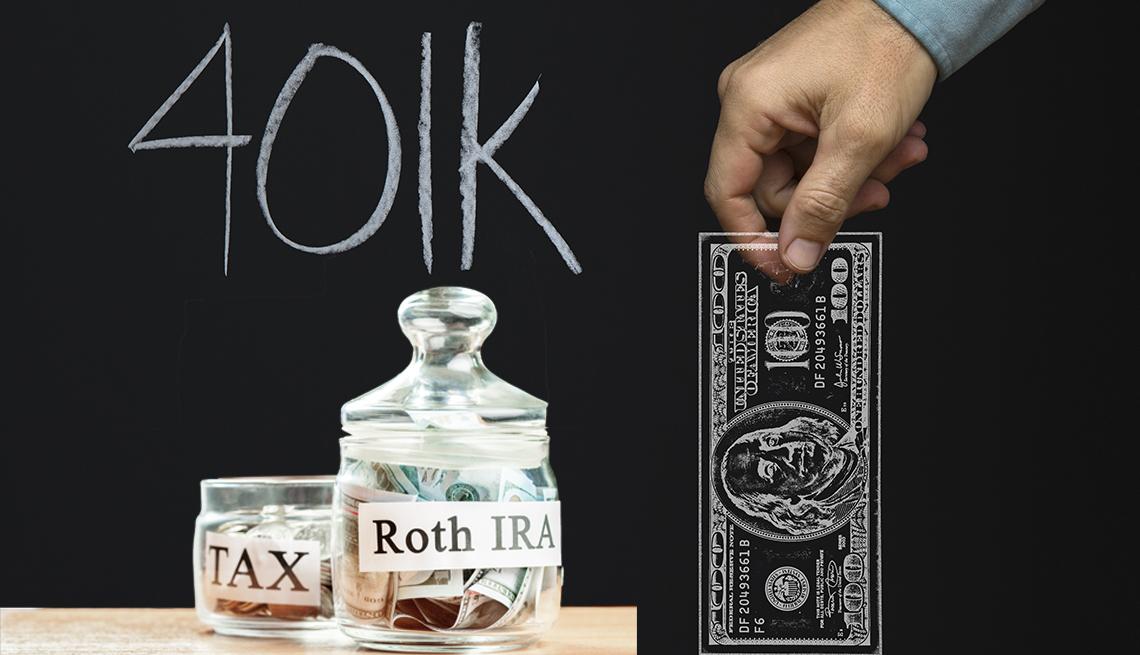Roth IRA is a beneficial type of retirement account. It has a lot of benefits, like income that isn't taxed and the ability to leave money to your heirs that aren't taxed.
If you have a 401(k) plan and are thinking about leaving your job, you can keep track of the different ways to roll over your account. One option is to switch from a regular 401(k) to a Roth individual retirement account (Roth IRA). This option may appeal to people who think they will make enough money in the future to put more money into a Roth account than the IRS allows. The article will cover Roth 401(k) to Roth IRA conversion and the Rules for Converting 401(k) to a Roth IRA.
What exactly is Known as Roth IRA?
Paying less in taxes during retirement is possible with it. It gives you some good reasons to save for your retirement. Investing in it allows you to contribute money on which taxes have already been paid. The ability to withdraw funds from a Roth IRA tax-free is its most appealing feature.
- A Roth IRA can be beneficial if you are making plans for your estate.
- You can give a Roth IRA to someone else, and they will get some big tax breaks as well.
- You can start a Roth IRA anytime if you have sufficient income.
Even more, options are available to you. There is no required minimum amount for payments. If you withdraw funds from your account early, you may be required to pay taxes. In addition, you will pay a 10% bonus penalty.
Converting a Traditional 401(k) to a Roth IRA
With a Roth 401(k) to Roth IRA conversion, the rules for withdrawing money differ slightly. You will be responsible for paying taxes as well as a penalty if you convert your conventional IRA or 401(k).
Converting to a Roth IRA and How to Perform
Roth 401(k) to Roth IRA conversion is straightforward. It's so easy to do that you can find yourself in a sticky situation before you realize what you've done.
The following is a rundown of the three primary stages involved in converting your traditional IRA to a Roth IRA:
- Set up a new Roth IRA account.
- Talk to the people in charge of your plan.
- Provide the necessary documentation.
Roth Conversions Are for Whom?

Many people may want to think about switching from a conventional IRA to Roth IRA. Following are some examples of the most typical circumstances in which doing so would be appropriate.
- You make too much money.
- Later on, your tax rates will be significantly greater.
- Your earnings have been low so far this year.
- Your goal is to provide your children with tax-free earnings in the future.
What to Watch Out for When Converting a Traditional 401(K) To the Roth IRA
You will want to pay attention to specific rules to make the most of your opportunity and avoid paying any taxes that aren't necessary. The following advice, gleaned from industry professionals, will help you avoid common pitfalls:
- Conversions may result in higher tax bills.
- Think about converting over time.
- If you've got the opportunity, converting is the way to go.
- Keep an eye out for the 5-year guideline!
- A conversion could have an impact on government programs
- Complete it on time.
- Be wary of the pro-rata rules for converting.
- Consult with an expert
Rules for Converting 401(k) to the Roth IRA
Since there are important differences between a traditional 401(k) and the Roth IRA, you'll have to pay some taxes during the year that you make the rollover:
- A traditional 401(k) is paid out of your salary before taxes are paid. It is taken right out of your gross income. You don't pay taxes on the money you put in or the money it makes until you take it out.
- After taxes, the money goes into the Roth IRA. You pay your income taxes before the money goes into your bank account. When you take the cash out, you won't have to pay taxes on it or any profit it makes.
- If you move money from a traditional 401(k) to the Roth IRA, you'll have to pay income taxes in the same year you move it.
A Few Other Options for Your 401(k)

When looking into how to roll over your 401(k), consider the following alternatives (k). OK, let's have a peek:
401(k) to 401(k) Rollovers
If you are changing jobs, you can transfer your traditional 401(k) balance tax-free to a new traditional 401(k) at your new company.
- Your new employer's plan may have certain requirements for rollovers.
- You may need to liquidate any shares of your former employer's stock in your account before switching jobs.
- A transfer will also fail if your current 401(k) is the Roth 401(k) and your prospective company offers only a standard 401(k).
Avoid Cashing Out
It's not a good idea to immediately withdraw all of your money.
- All your contributions to a standard 401(k) plan will be subject to income taxation. The 10% penalty for withdrawals made before the age of majority also applies.
- If you take money from the Roth 401(k) before 59 1/2 and haven't held the account for five years, you'll owe taxes on the earnings and pay a 10% early withdrawal penalty.
To Wrap Up
That’s all for the Rules for Converting 401(k) to a Roth IRA. Converting a retirement account is legal. The applicable tax requirements are convoluted, and meeting their deadlines might be difficult. The best candidate for converting a 401(k) to the Roth IRA is someone who plans to delay taking money out of their retirement account for at least five years. Those who roll over their 401(k) funds into a pre-existing Roth IRA avoid the 10% early withdrawal penalty, especially those who have been together for at least five years or are 59 and a half or older.




